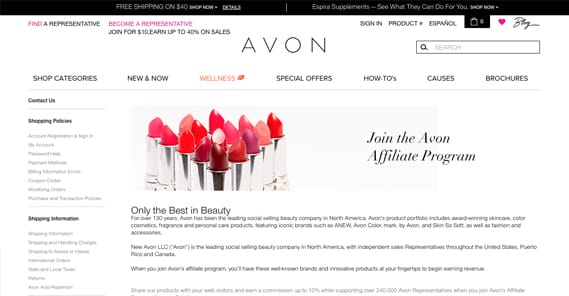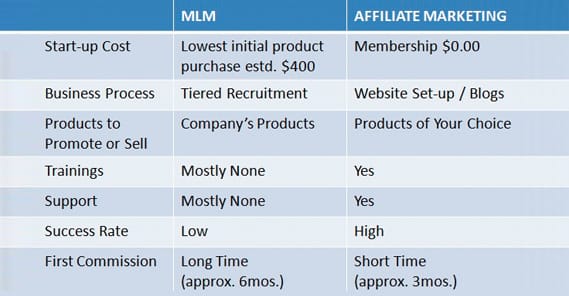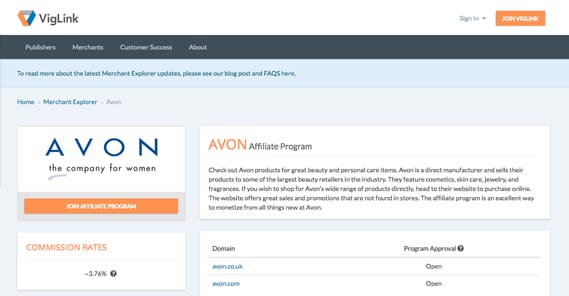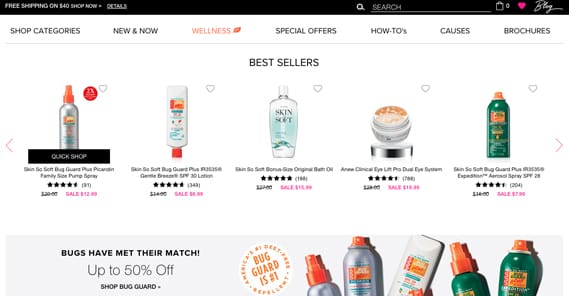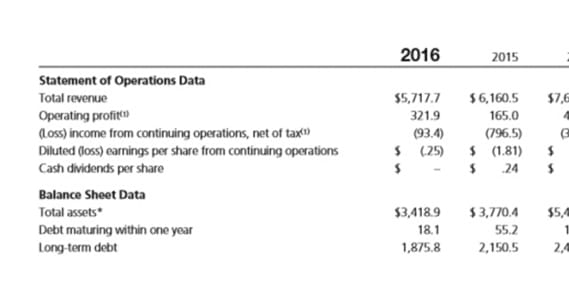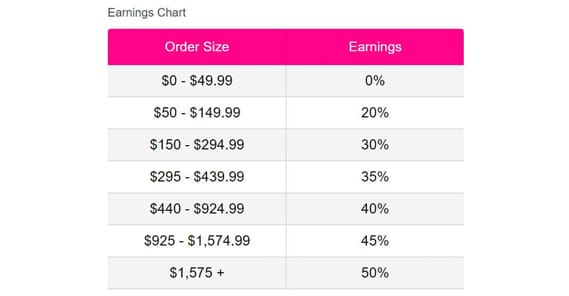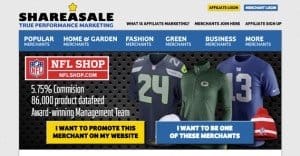How Much Can You Earn with Avon’s Affiliate Network?
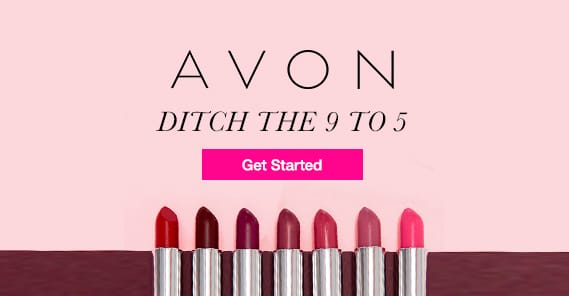
Avon is one of the oldest and most “venerable” of the multi-level marketing (MLM) companies in the world. It was originally founded in 1886 and has grown to be one of the largest companies in the world, and the fifth largest beauty-focused company.
Name recognition in the world of MLMs is a strange thing. For many, especially these days, name recognition is a bad thing. Once people realize your business is an MLM, it starts becoming associated with words like “scam“. After all, with how hard it is to get a business off the ground today, a company with a business model entirely based around starting a micro-business inherently dominated by your direct competition – and indeed, when a large portion of your profits goes to that competition for signing you up – can be a difficult proposition indeed.
On the other hand, average users tend to feel like an MLM is a short-lived beast. Many MLMs reach a certain level of critical mass and fold or are revealed to be largely ineffective for the majority of their users. So when you hear about Avon, an MLM that has been around for over 130 years, you wonder how it succeeds. It can’t be a scam, right? After all, no scam would last that long except politics.
Now, I’m not going to go in deep as either a proponent or an opponent to Avon. MLMs are inherently shady, but a dedicated marketer can certainly use them to make money. Avon must be doing something right to have avoided the usual MLM fate of cannibalizing itself into oblivion.
MLM Versus Affiliate Marketing
There’s two crucial differences between an MLM and an affiliate network, and those are a buy-in and their growth pattern. With a traditional multi-level marketing program, the general pattern is always the same. Each person in the pyramid is encouraged to sign up people beneath them as sellers, while also selling products themselves. Anyone who signs up as a seller has to buy a kit of products to sell, as a sort of ready-made storefront kiosk.
Those who find success with MLM often realize very quickly that selling the products is not the way to extreme profits, but rather selling the opportunity to sell instead. However, advancement in the ranks of the MLM is often gated behind certain levels of direct sales, as a way of protecting the company as a whole against litigation and prosecution for being nothing more than a pyramid scheme. As long as products are sold at each level, the brand as a whole is not at risk.
Affiliate marketing is different in two ways. First of all, you don’t need to buy and manage an inventory. You don’t need a storefront at all, actually: all you do is link to products in the store of the “home office”, so to speak. With Avon, that’s usually some beauty cream or treatment. All you have to do is write something on a blog and link to a relevant product with your affiliate tag. When anyone purchases the item, you get a commission on the sale. You know how it goes, right?
The second way is that affiliate marketing does not encourage or require signing up people beneath you. In fact, with Avon’s affiliate program, there’s no mention of commissions for signing up new sellers. You have a commission on the products you refer sales to Avon itself, and that’s it.
Because of this, I’m basically going to ignore the MLM side of Avon and focus entirely on their storefront and their affiliate program.
Avon Affiliate Details
As an affiliate network, Avon is actually fairly decent. For one thing, they aren’t a proprietary system. Avon actually just uses CJ Affiliate by Conversant, formerly Commission Junction, an affiliate network used by hundreds of other brands. They’re widely regarded as trustworthy and effective.
There’s really no difference between the Avon affiliate program and similar programs from companies like Amazon. Your ability to make money comes entirely contingent on your ability to create and grow a website.
Avon doesn’t seem to have much in the way of scam accusations for affiliate marketing. No one is really complaining about them skimming traffic or dropping legitimate purchases as fakes, which usually plagues smaller affiliate networks.
Avon’s affiliate program seems to apply a flat fee structure. You’re earning a commission of somewhere around 4% on the products you sell, which isn’t all that much. Amazon’s affiliate structure ranges from 1% to 10% with most products falling around 4%, and with growth based on monthly sales volume. Amazon, however, has the advantage of a huge base of products in a wide variety of niches, rather than just one niche like Avon’s focus on beauty.
The primary advantage of using the affiliate program instead of becoming a direct seller is the ability to sell without having to buy into the program. With normal MLM selling under Avon, you need to buy your products and keep up your inventory. Your commission is higher assuming you can sell everything you buy, but you’re also encouraged to buy into various non-products, primarily brochures, which eats your profits while not being sellable items.
The disadvantage of using the Avon affiliate program is the lack of pyramid building. MLM experts agree that the primary way to be wildly successful with an MLM is to sign up as many people as possible. You’re not doing that with a basic affiliate program.
Now, Avon may allow you a commission on sellers you sign up through the affiliate program, but I see no mention of it in either other reviews or in their affiliate description. I’m assuming it doesn’t exist, because it allows Avon to pay less to their affiliates and allows them to focus direct sales pressure on new registrants.
Competition Issues
The primary drawback to using Avon as an affiliate network is competition. Avon is over 100 years old, which means there’s an absolute ton of name recognition out there. Even if you’re not in the market for beauty products, you’ve probably heard of Avon.
This is a blessing and a curse. On the one hand, as an established brand, an affiliate marketer doesn’t need to spend time building up trust and encouraging users to buy from this company as opposed to, say, Amazon directly. Everyone knows Avon is at the very least a legit company with real products, and that they’ll get what they pay for.
On the other hand, Avon has legions of motivated sellers already, meaning competition is incredibly fierce for all of the same products. With Amazon affiliates, you can pick a product niche and be reasonably assured that only a small fraction of Amazon’s affiliate base is selling that product set. Some are more crowded than others, like video games or beauty products, but with millions of possible products, you might find something to recommend that few if any other users are recommending.
With Avon, you have no such luck. Avon has a limited, albeit large, catalog. Avon also has thousands of other marketers encouraged to build websites to sell their products and to sign up new sellers. You can’t find a sub-niche to compete in because there’s not that much flexibility with their catalog.
This inherently limits the amount you can make selling Avon affiliate products. It’s a packed niche. Heck, there are even sub-niches of just selling for Avon, like this WordPress theme referral. You can make money selling supplies to people wanting to sell Avon without actually selling Avon yourself. It’s almost ridiculous and satirical.
The other drawback with the Avon affiliate program is just the fact that you’re selling the products through Avon rather than through your own Avon representative business. You lose out on the ability to earn sub-commissions on people you sign up, and your commission is significantly smaller than through direct sales. This is all not to mention the fact that Avon itself will pressure you to convert from an affiliate into a direct seller. After all, the more people you sign up to sell, the more brochures Avon can sell, and the more money the people at the top of the pyramid make.
Potential Earnings
As with any affiliate network, the only limit on how much money you can make is how much you’re willing to put into the work. If you’re capable of some advanced web marketing, and you’re able to build a high-power website with a lot of content and a high Google search ranking, you’re probably going to be able to make a good amount of cash.
That is to say, there is no cap on what Avon will pay out to their affiliates. You’ll never reach a point where Avon cuts you off or demands you do something different. After all, Avon just wants to sell as many products as possible. Their affiliate program is one of their smallest potential commissions, so the encourage it because they can make more profit of each sale.
Competition, as mentioned, is fierce. Beauty is one of the largest and most competitive niches in all of affiliate marketing, and Avon is a large and extremely competitive niche within that vertical.
Consider this: every person you obtain as a customer is someone another direct seller is not able to sell to. Since direct sales – and the opportunity to potentially sign up those customers as future distributors – are the primary source of profit for existing representatives, this can make them pretty angry. You essentially have a legion of very motivated sellers trying to run you specifically out of business.
This means you’ll experience a lot of cutthroat techniques. Some Avon reps will simply be very fierce with their marketing, investing their budget in paid advertising and more content for their websites. Some of them will be even more dangerous, and might even try to sabotage you. I’ve seen Avon sites spinning and copying content to make a competitor less valuable and unique. I’ve even seen the occasional Avon rep buying bad traffic to their competitors to try to get their affiliate program account shut down.
To round it all up, while there’s no technical cap on your potential earnings, you have to be able to be flexible and defensive while also being aggressive with your marketing if you want to gain any exposure at all.
Is Avon Recommended?
I honestly would not recommend relying on the Avon affiliate program for your earnings. It’s difficult to get established and it’s even more difficult to succeed solely based on Avon itself. The pressure to become a direct seller can also potentially eat into your profits.
The role Avon should play is as a small part of a larger affiliate presence. Establish a general interest beauty site and use Avon as one part of a multi-faceted affiliate presence. Recommend beauty products from other sources, from Amazon to Sigma and others. Some customers will be die-hard Avon fans, and that’s fine: they can make their way to the Avon section of your site and walk away happy. Others are more likely to want to avoid supporting an MLM and can happily make purchases from other affiliate sources.
As with all affiliate marketing, success depends on your ability to grow and market a website effectively. If you can establish a site in Google’s search and can find your niche, you can make a tidy living. If you can’t, it’s going to be difficult to make back the investment of developing a website in the first place.
If you’re a newcomer to affiliate marketing, I recommend staying away from Avon and the beauty niche in general. It’s saturated, it’s fiercely competitive, and it’s difficult to get started. It’s a better target for experienced marketers who have other income streams to use as a fallback.
 ContentPowered.com
ContentPowered.com
